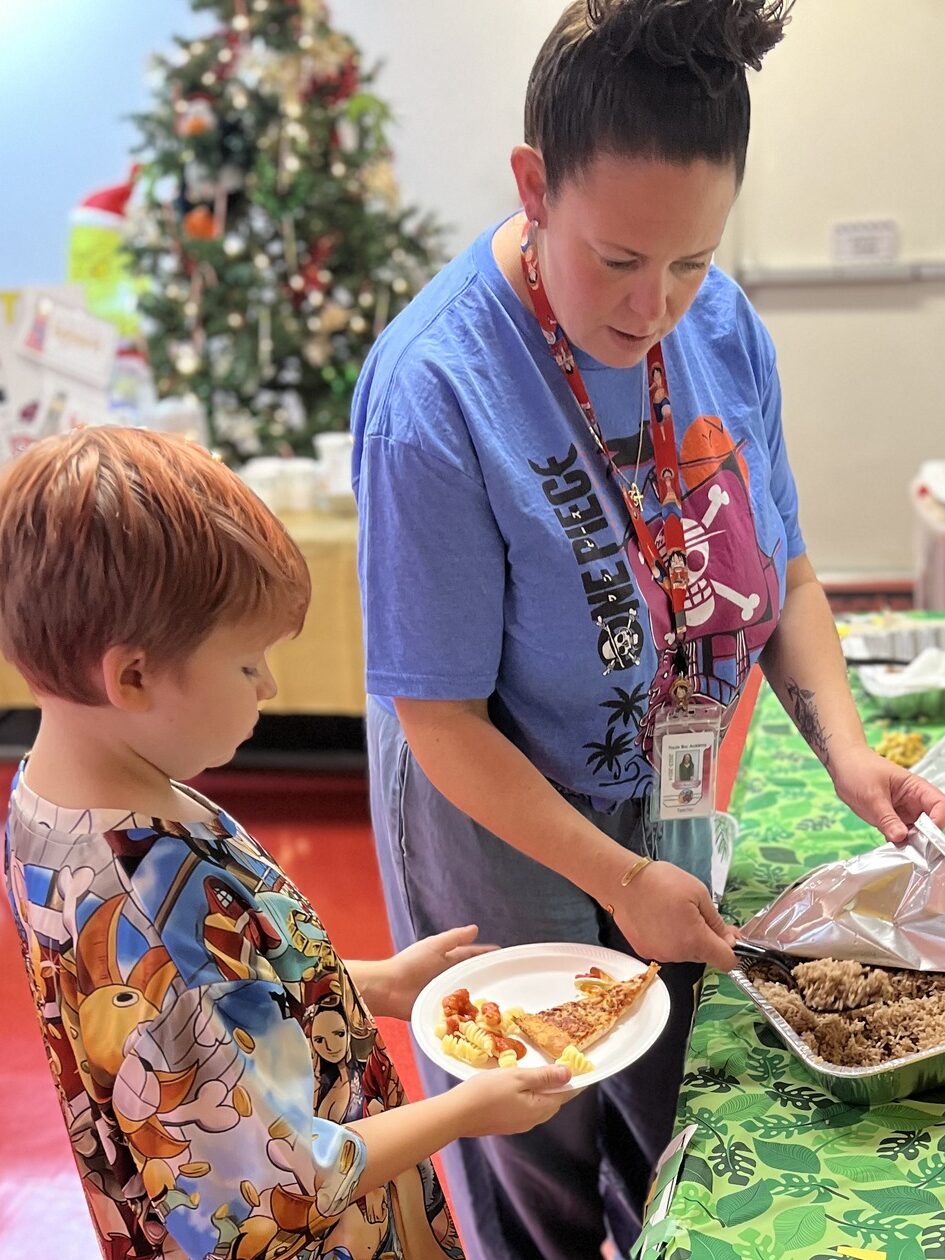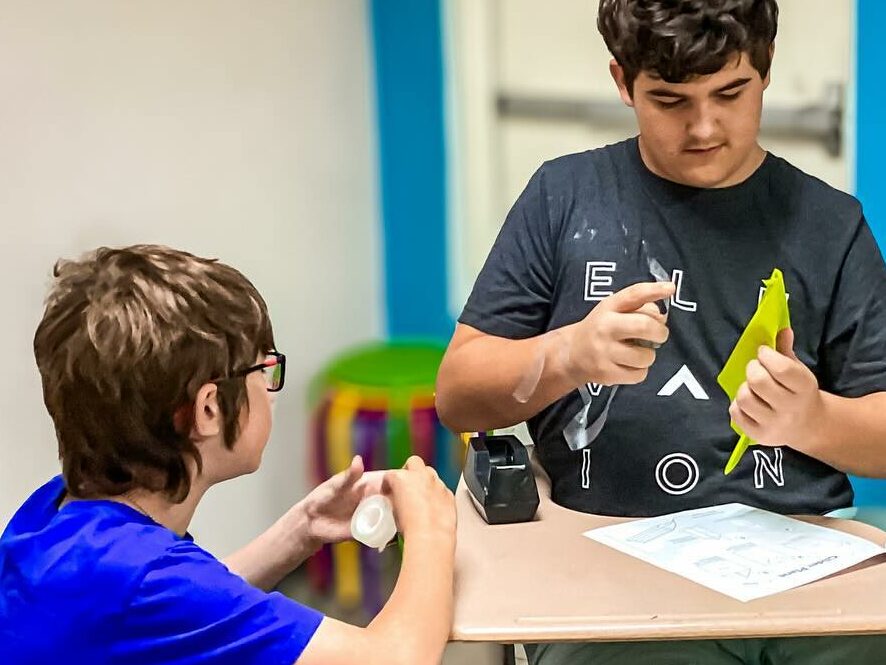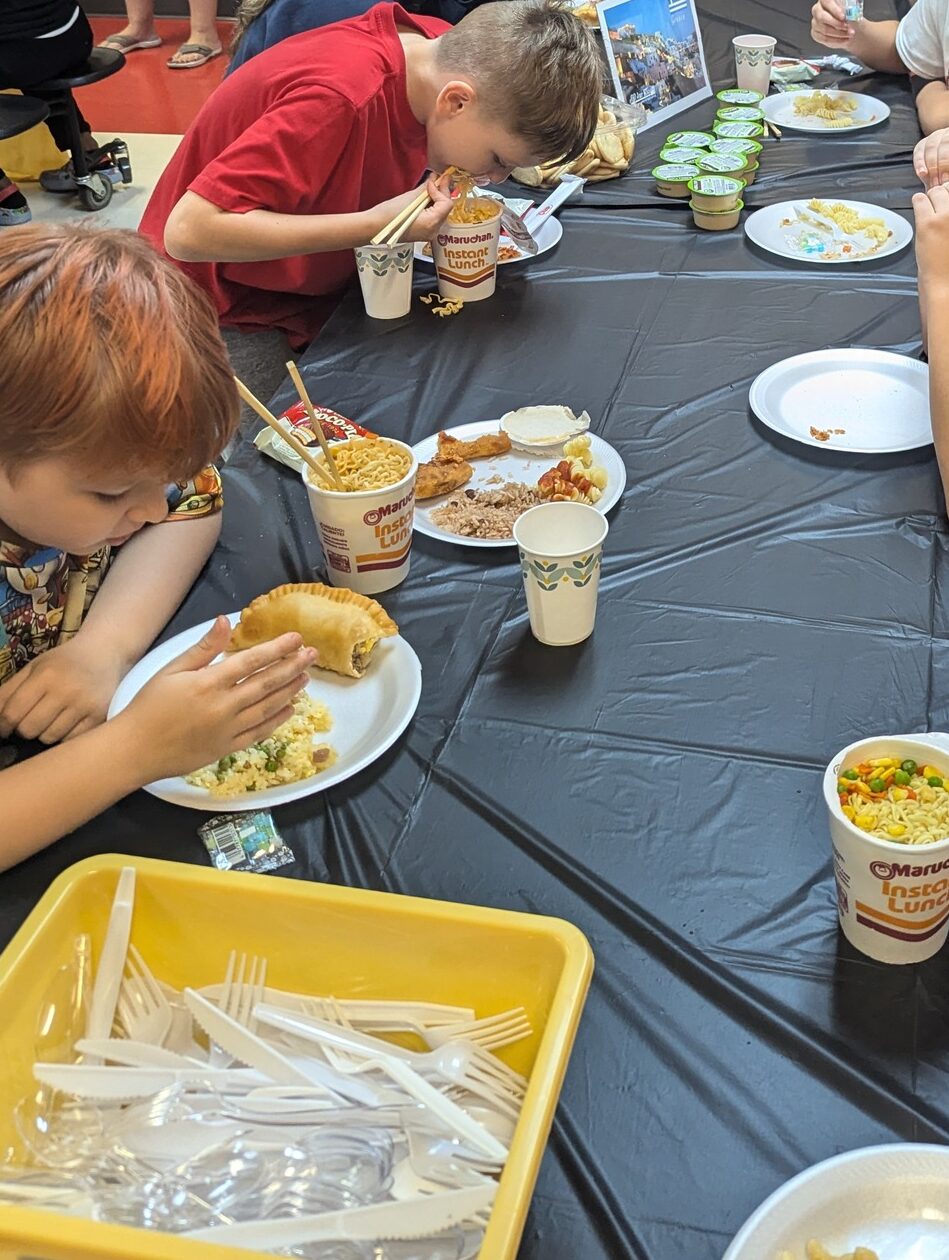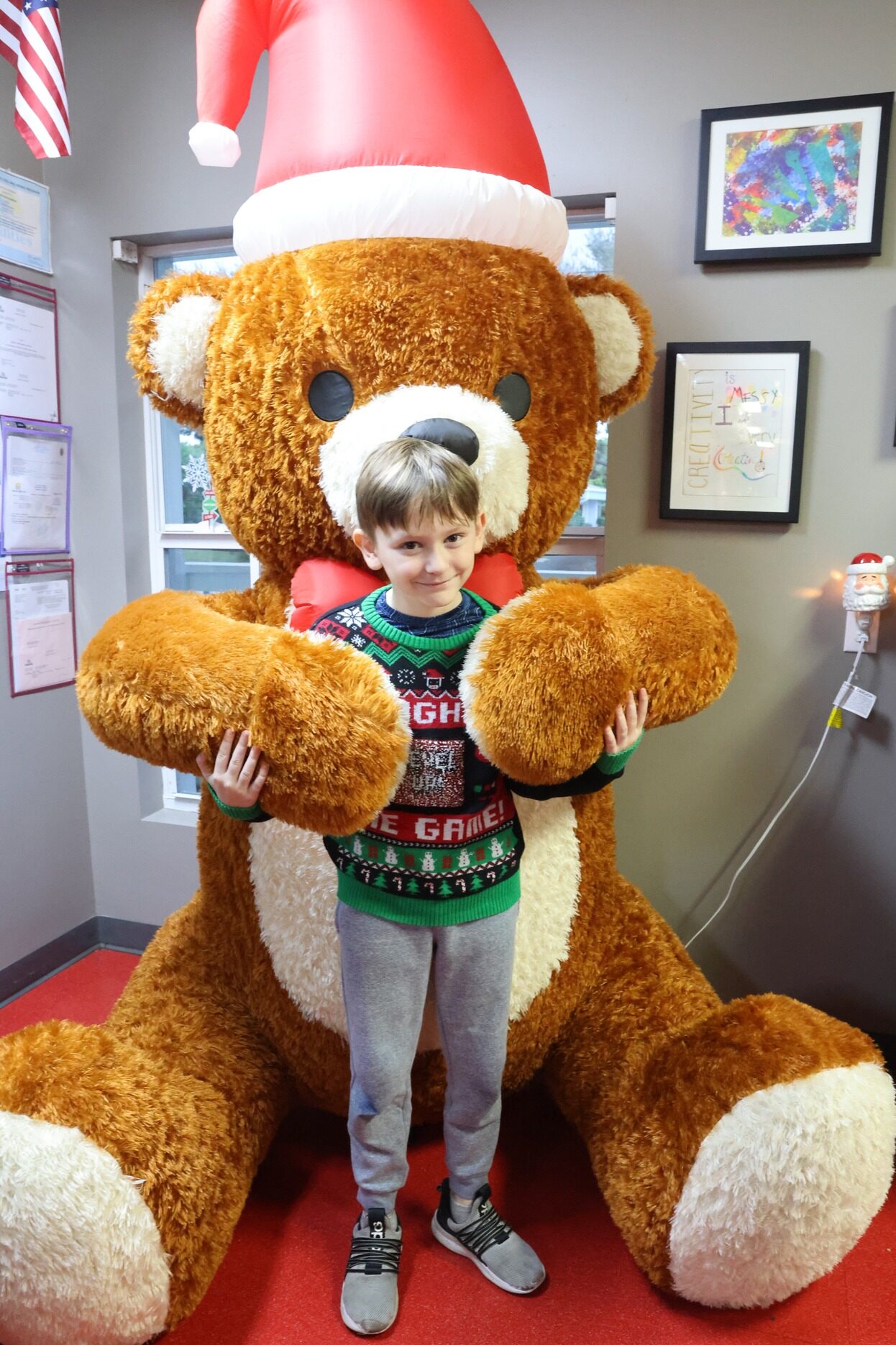Navigating family gatherings with neurodivergent kids can often feel like traversing a complex maze, but it doesn’t have to be daunting. As parents and caregivers, understanding our children’s unique needs and preparing them for these social interactions can transform these events into more harmonious and enjoyable experiences for everyone involved. In this piece, we’ll explore practical strategies and heartwarming insights to help you support your child during family functions, from preparing them for sensory overload to teaching relatives how to interact respectfully. Whether it’s a festive holiday dinner or a casual weekend visit, our aim is to empower you with the knowledge and confidence to foster a welcoming environment that celebrates neurodiversity and strengthens family bonds.
Understanding Family Gatherings
Preparing Neurodivergent Children
Preparing neurodivergent children for family gatherings involves thoughtful planning and communication. Begin by setting expectations early. Discuss the event’s details, such as location, who will be present, and any planned activities. Visual supports like photos or social stories can be invaluable in helping your child mentally prepare for meeting relatives. Consider creating a schedule or timeline to provide a sense of predictability.
Practice scenarios at home to familiarize your child with potential social interactions. Role-playing can be an effective way to rehearse greetings or responses to common questions. Additionally, talk about sensory elements they might encounter, such as noise or unfamiliar smells, and discuss strategies they can use to cope, like having a quiet space to retreat to when needed.
Empower your child by involving them in the preparations. Let them pack a comfort item or choose a favorite snack. These small actions can provide a sense of control and make the gathering feel less overwhelming.
Family Dynamics and Challenges
Family dynamics can be particularly challenging during gatherings, especially for neurodivergent children. Large groups can be overwhelming, with numerous relatives vying for attention. It’s important to acknowledge these dynamics and prepare for them. Before the gathering, talk with your child about who they may encounter and how these interactions might unfold.
Explain family relationships in simple terms. This can help your child understand who is who and why certain behaviors are expected. Also, set boundaries on physical interactions, such as hugs, if your child is uncomfortable with them. Inform family members in advance about respecting these boundaries to avoid any misunderstandings.
Discuss potential challenges like loud conversations or crowded spaces and plan coping mechanisms. Encourage breaks and provide a safe space where your child can retreat if needed. By addressing these dynamics and challenges beforehand, you can help your child feel more secure and comfortable, allowing them to enjoy the gathering at their own pace.
The Importance of Preparation
Simulating Family Gatherings
Simulating family gatherings at home can be a powerful tool to prepare neurodivergent children for real-life events. Start by recreating the atmosphere they might encounter, using elements like background noise, music, or even specific scents to mimic the environment. This approach can help accustom them to sensory inputs they may find challenging.
Role-playing various social interactions is also beneficial. Practice greetings, conversation starters, and responses to typical questions. This rehearsal can boost your child’s confidence and reduce anxiety about meeting relatives.

Incorporating games or activities typical of family gatherings into your simulation can further familiarize your child with what to expect. For instance, if your family enjoys board games, play a similar game at home to introduce the concept in a controlled setting.
These simulations not only prepare your child for the gathering itself but also allow you to observe and adjust any strategies as needed, ensuring a smoother experience for everyone involved.
Using Familiar Games and Music
Incorporating familiar games and music into preparation can significantly ease the transition into a family gathering for neurodivergent children. These familiar elements serve as comforting anchors in an otherwise unpredictable environment. Begin by identifying games that your child enjoys and are also likely to be played at the gathering. Practicing these games at home allows your child to gain confidence in the rules and flow, reducing potential stress during the actual event.
Music, too, can play a calming role. If your family gatherings typically feature certain types of music, consider playing these tunes at home. This exposure can help your child become desensitized to the volume and rhythm, making it less overwhelming during the gathering. Familiar songs can also serve as a soothing presence, providing a sense of continuity and familiarity.
By incorporating these elements into your preparations, you create a bridge between home and the external social setting, helping your child navigate the experience with greater ease and enjoyment.
Handling Unexpected Situations
Teaching Social Etiquette
Teaching social etiquette to neurodivergent children can be a helpful way to prepare them for unexpected situations in family gatherings. Start by introducing basic social norms, such as greeting others, making eye contact if comfortable, and using polite phrases like “please” and “thank you.” These foundational skills can aid in smoother interactions and help your child feel more at ease.
Role-playing various scenarios can be an effective teaching tool. Simulate typical family interactions and guide your child through appropriate responses, encouraging them to express their feelings or needs clearly. Additionally, discuss the concept of personal space and respecting others’ boundaries, which is crucial in crowded settings.

Provide clear examples of different social cues, like body language or tone of voice, and explain what they might indicate. By equipping your child with these social tools, you empower them to navigate unexpected social situations with greater confidence, reducing anxiety and fostering more positive family interactions.
Encouraging Positive Communication
Encouraging positive communication in neurodivergent children is key to handling unexpected situations at family gatherings. Start by fostering an open dialogue with your child about their feelings and experiences. Encourage them to express any concerns or excitement about the upcoming event, and reassure them that their feelings are valid and important.
Model positive communication by demonstrating active listening and empathy during your conversations. Show your child how to ask questions politely and engage in turn-taking, which can help them navigate social interactions more smoothly.
Praise your child for their communication efforts, no matter how small, to build their confidence. Reinforce the idea that it’s okay to ask for help or clarification when they don’t understand something. By creating a supportive environment and equipping them with the skills to communicate effectively, you empower your child to handle unexpected situations with grace, enhancing their experience and interactions during family gatherings.
Traveling with Neurodivergent Kids
Preparing for Long Journeys
Preparing for long journeys with neurodivergent children requires careful planning to ensure a smooth and comfortable experience. Begin by discussing the trip details in advance, including the mode of transportation, expected duration, and any stops along the way. Use visual aids like maps or schedules to help your child understand the journey’s structure.
Pack a travel kit with essentials like noise-canceling headphones, favorite snacks, and comfort items such as a beloved toy or blanket. These can help manage sensory sensitivities and provide a sense of familiarity during the trip.
Create a playlist of calming music or audiobooks to keep your child entertained and relaxed. Additionally, plan for regular breaks if possible, allowing your child to stretch and recharge.
Practice travel routines beforehand, such as boarding a car or plane, to reduce anxiety about unfamiliar procedures. By preparing thoroughly, you can help your neurodivergent child feel more secure and at ease, making the journey more enjoyable for everyone involved.
Managing Different Environments
Managing different environments while traveling with neurodivergent kids involves proactive strategies and flexibility. Start by familiarizing your child with the environments they will encounter, such as airports, train stations, or rest stops. Use photos or videos to provide a visual preview, helping them anticipate what to expect.
Identify potential sensory triggers in these environments, such as loud noises or bright lights, and plan coping strategies like wearing sunglasses or earplugs. Having a designated safe space or quiet area to retreat to can also be beneficial if your child becomes overwhelmed.
Encourage your child to express their feelings and needs, and reassure them that it’s okay to take breaks when necessary. Maintain a flexible itinerary that allows for adjustments based on your child’s comfort level.
By preparing for and adapting to different environments, you can help your neurodivergent child feel more secure and confident, ensuring a more positive travel experience for the entire family.
Creating Inclusive Traditions
Adapting Holiday Meals
Adapting holiday meals to accommodate neurodivergent children can make celebrations more inclusive and enjoyable for everyone. Start by considering any dietary preferences or restrictions your child may have. This could include sensory sensitivities to textures or flavors that might be present in traditional holiday dishes.
Offer a variety of food options, including familiar favorites that your child enjoys. This ensures they have something comforting to eat amidst the new or different dishes. Involve your child in the meal planning process by allowing them to help choose or prepare dishes. This involvement can increase their excitement and willingness to try new foods.

Communicate with family members about your child’s needs in advance. This can help prevent misunderstandings and ensure supportive dining arrangements, such as seating away from crowded tables or noisy areas.
By adapting holiday meals to meet the needs of neurodivergent children, you foster an inclusive environment that celebrates diversity and makes the holiday experience more welcoming for all.
Balancing Traditions and Comfort
Balancing traditions and comfort is key to creating inclusive holiday celebrations for neurodivergent children. Begin by identifying which traditions hold special meaning for your family, and discuss these with your child to gauge their comfort level and interest. It’s important to prioritize their well-being while still honoring the essence of the tradition.
Consider modifying certain rituals to better suit your child’s needs. For instance, if participating in a large family gathering is overwhelming, suggest a smaller, more intimate celebration. Alternatively, introduce new activities that blend traditional elements with your child’s interests, such as crafting decorations or creating a personalized holiday playlist.
Allow for flexibility in participation. Encourage your child to join in when they feel comfortable, and assure them that stepping away is okay. This approach respects their boundaries and fosters a sense of security.
By thoughtfully balancing traditions with your child’s comfort, you create a holiday atmosphere that respects neurodiversity and strengthens family connections.
Encouraging Family Support
Communicating Needs to Relatives
Effectively communicating your child’s needs to relatives is crucial in fostering family support and understanding. Start by having open conversations well in advance of gatherings. Clearly explain your child’s unique needs, preferences, and any potential challenges they might face in social settings. This proactive approach helps relatives understand the importance of their role in creating a supportive environment.
Consider providing specific examples of what might help your child feel more comfortable, such as offering alternative greetings if your child is sensitive to touch or ensuring there’s a quiet space available for breaks. Highlighting these accommodations can bridge the gap between unfamiliarity and acceptance.
Encourage relatives to ask questions and express any concerns they may have. This dialogue promotes empathy and cooperation, leading to more inclusive interactions during family events. By fostering an atmosphere of understanding and support, you ensure that your child’s needs are met, and you strengthen family bonds through shared efforts and compassion.
Promoting Acceptance Over Tolerance
Promoting acceptance over mere tolerance within families is essential for fostering genuine support for neurodivergent children. Start by educating relatives about neurodiversity, emphasizing that differences should be celebrated rather than simply tolerated. Acceptance means understanding and respecting each child’s unique traits and needs, creating an environment where they feel valued and included.
Encourage family members to engage actively and positively with your child, building relationships based on trust and mutual respect. Suggest activities that highlight your child’s strengths and interests, allowing relatives to see and appreciate their individuality beyond any challenges.

Reinforce the idea that acceptance involves adjusting expectations and being open to new ways of connecting. Encourage empathy by helping relatives recognize the world from your child’s perspective, fostering a deeper emotional connection.
By promoting acceptance over tolerance, you cultivate a family dynamic that supports neurodivergent children wholeheartedly, enhancing their sense of belonging and contributing to a more harmonious and inclusive family environment.

